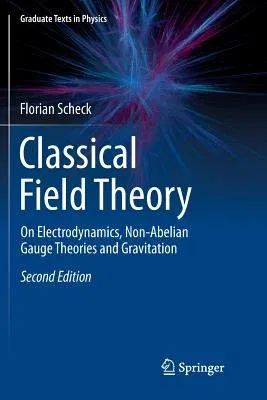Florian Scheck
(Author)Classical Field Theory: On Electrodynamics, Non-Abelian Gauge Theories and Gravitation (Softcover Reprint of the Original 2nd 2018)Paperback - Softcover Reprint of the Original 2nd 2018, 30 January 2019

Qty
1
Turbo
Ships in 2 - 3 days
In Stock
Free Delivery
Cash on Delivery
15 Days
Free Returns
Secure Checkout

Part of Series
Graduate Texts in Physics
Print Length
464 pages
Language
English
Publisher
Springer
Date Published
30 Jan 2019
ISBN-10
3662585618
ISBN-13
9783662585610
Description
Product Details
Author:
Book Edition:
Softcover Reprint of the Original 2nd 2018
Book Format:
Paperback
Country of Origin:
NL
Date Published:
30 January 2019
Dimensions:
23.39 x
15.6 x
2.46 cm
ISBN-10:
3662585618
ISBN-13:
9783662585610
Language:
English
Location:
Berlin, Heidelberg
Pages:
464
Publisher:
Series:
Weight:
666.78 gm